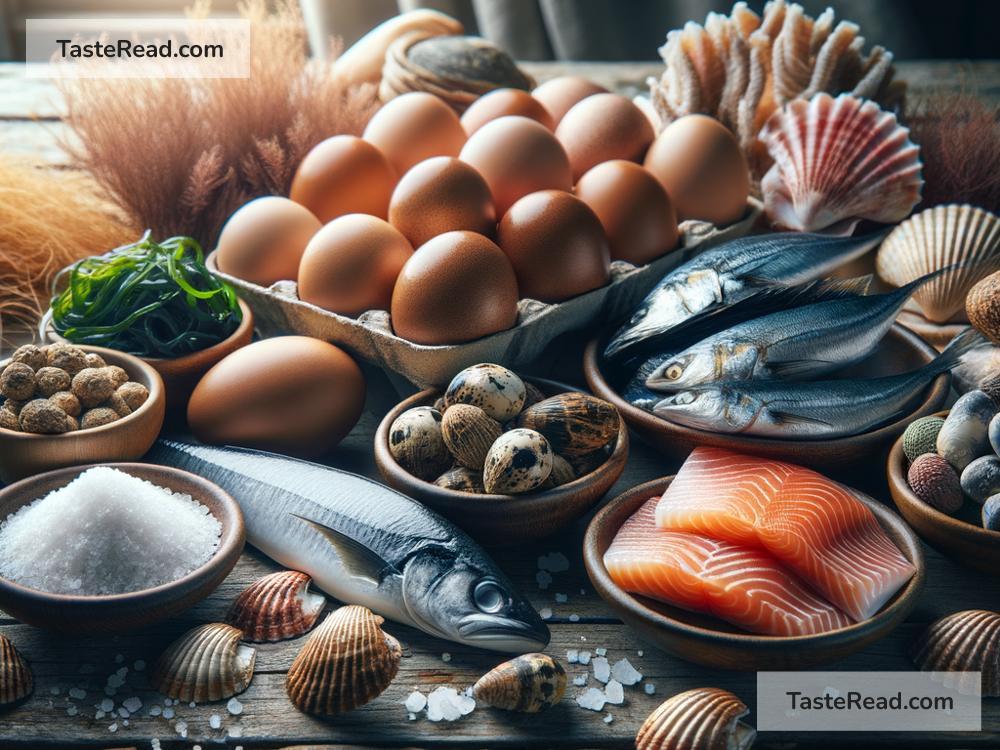The Importance of Iodine in Nutrition
When it comes to staying healthy, the food we eat plays a huge role. Our body needs vitamins and minerals to work properly, and iodine is one of those important minerals. While it may not be as famous as calcium or vitamin C, iodine is essential for good health. In this article, we’ll explore why iodine is so important, how it affects our body, where to find it in food, and how to avoid problems caused by iodine deficiency.
What is Iodine and Why Is It Important?
Iodine is a trace mineral, meaning we only need it in small amounts. Despite this, it has a big job in our body. The main role of iodine is to help the thyroid gland produce hormones. The thyroid gland is a butterfly-shaped organ located in your neck. It makes hormones called thyroxine (T4) and triiodothyronine (T3), which regulate many important functions in your body, including metabolism, energy levels, growth, and development.
Without enough iodine, your thyroid can’t make these hormones effectively, which can lead to health problems. Getting the right amount of iodine is especially important for pregnant women, breastfeeding mothers, and children because it plays a key role in brain development and growth.
What Happens When You Don’t Get Enough Iodine?
If your body doesn’t get enough iodine, it can cause iodine deficiency. This can lead to a condition called hypothyroidism, where the thyroid gland doesn’t produce enough hormones. Symptoms of hypothyroidism include fatigue, weight gain, feeling cold, and depression. Another common sign of iodine deficiency is the development of a goiter, which is a swelling in the neck caused by an enlarged thyroid gland.
In severe cases, iodine deficiency can lead to serious problems. For pregnant women, not getting enough iodine can affect the brain development of the baby, leading to intellectual disabilities and developmental delays. In children, iodine deficiency can result in poor concentration and lower IQ levels.
How Much Iodine Do You Need?
Different people need different amounts of iodine based on their age and life stage. Adults generally need about 150 micrograms of iodine per day. Pregnant women need more—about 220 micrograms daily—and breastfeeding mothers need 290 micrograms to ensure their baby gets enough iodine through breast milk.
Since iodine is only needed in small amounts, it’s important to avoid getting too much iodine as well. Too much iodine can lead to thyroid problems similar to having too little iodine. However, iodine toxicity from food sources is rare; it’s usually caused by taking too many supplements.
Where Can You Get Iodine?
The good news is that iodine is readily available in certain foods. Here are some common dietary sources of iodine:
-
Iodized Salt: One of the easiest ways to get iodine is through iodized salt, which is regular table salt fortified with iodine. Using iodized salt for cooking or seasoning can help ensure your body gets enough iodine. However, it’s important to use salt in moderation because high sodium intake can lead to health problems.
-
Seafood: Many types of seafood are rich in iodine, especially fish like cod and tuna, as well as shrimp and other shellfish. Seaweed, such as nori, kelp, and wakame, is also a fantastic source of iodine.
-
Dairy Products: Milk, cheese, and yogurt often contain iodine, particularly when the cows are fed iodine-rich diets or iodine supplements.
-
Eggs: Eggs, especially the yolk, provide a good amount of iodine.
-
Fruits and Vegetables: Some fruits and vegetables, like strawberries, potatoes, and spinach, contain iodine, although the amount can vary depending on the soil where they are grown.
-
Fortified Foods: In some countries, bread and other foods are fortified with iodine to help people get enough of this important nutrient.
How to Avoid Iodine Deficiency
For most people, eating a varied and balanced diet that includes iodine-rich foods is enough to avoid iodine deficiency. However, certain groups of people may have a higher risk of not getting enough iodine. For example:
- People who avoid iodized salt or eat low-sodium diets may miss out on an easy source of iodine.
- Vegans and vegetarians who don’t eat seafood or dairy may need to find plant-based sources of iodine, such as iodine-rich seaweed.
- Pregnant women need more iodine than usual and should make sure their diet includes sufficient iodine.
If you’re worried about getting enough iodine, your doctor may recommend iodine supplements, but you should always check with a healthcare provider before taking supplements.
Conclusion: Small but Mighty
Iodine may be a tiny mineral, but it plays a giant role in keeping us healthy. Without it, our thyroid can’t function properly, which affects many aspects of our health, from energy levels to brain development. While iodine deficiency can cause serious health problems, it’s fairly easy to avoid by eating iodine-rich foods like seafood, dairy products, eggs, and iodized salt.
By understanding the importance of iodine and making sure it’s part of your diet, you can support your thyroid and overall health. So the next time you sprinkle iodized salt on your food or enjoy a piece of fish, remember—you’re also giving your body a nutrient it needs to thrive!


